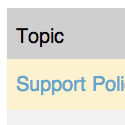As far as this blog is concerned, I rarely share anything personal. That is, I rarely share anything outside of WordPress and/or general development practices, but the thing is, when you make your living off of just that, it’s hard for it not to intersect with your personal life in some capacity.
When I was in high school, I remember feeling especially stressed out about a number of different things that I had going on all at once. At the time, it seemed like a big deal. I remember talking with my parents about it and my dad specifically saying:
You’ve got too many irons in the fire.
Though I knew he was right, I still laughed a little bit because that’s the kind of wisdom that, as a teenager, you expect to come from your parents, right? Plus, the implication is that you have to remove some of the said irons and I wasn’t going to do that (again, because I of the whole stubborn teenager thing).
But here I am over 10 years later with that phrase going through my head again.
And again.
And again.
Too Many Irons in The Fire
Though this isn’t true of all, I’d venture to say that most people are busy – busy with jobs, busy with significant others, busy with exercising, busy with traveling, etc.
We’ve all got stuff going on. The only thing is that we have different stuff going on – and one person’s level of busyness is hard to compare to another person’s level of busyness because they’re two different types of activities so the whole I’m-busier-than-you-are-and-you-don’t-understand mentality is pointless.
So anyway, one of the things that I absolutely love about balancing my time between self-employment and working at building a company is that I get to work on a lot of really fun stuff with some really amazing people (and great friends).
On top of that, I have the opportunity to speak at some really cool events, contribute to a variety of different blogs, and I have the ability to watch all of the little characteristics and personality traits develop in my 16 month old.
But the challenge of balancing all of this is that you eventually find yourself having to juggle too much or, to use the same idiom, manage too many irons in the fire.
If you want to continue working on the things that you love with the people who are worth surrounding yourself with all the while being fully present as a husband and a father, then something has to go.
As I mentioned earlier in the post: the implication if the idiom is that have to remove some of those said irons.
And that’s no easy task.
Continue reading






